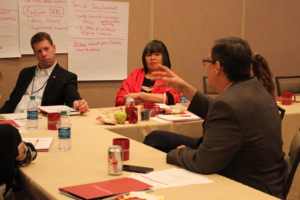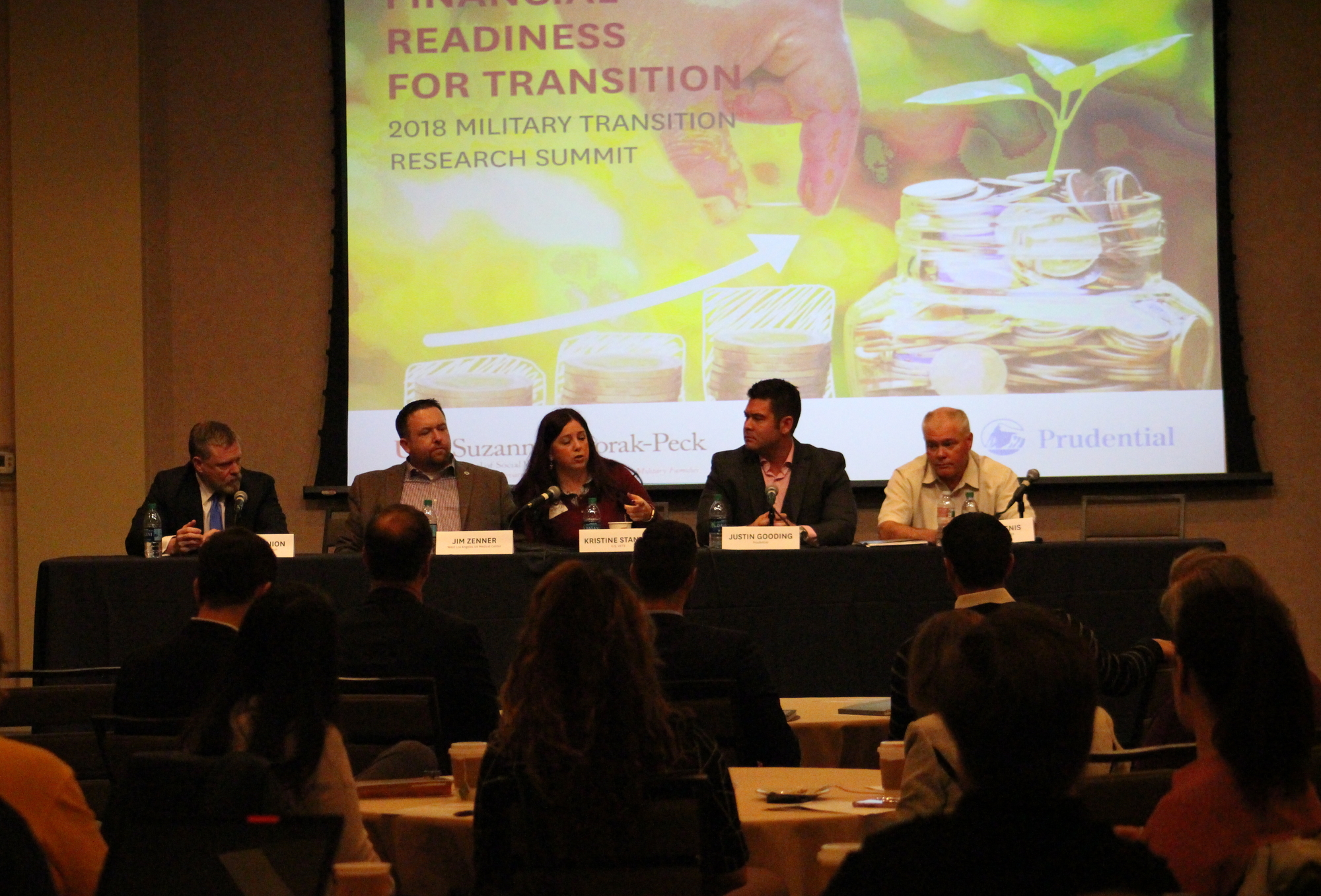
Summit attendees brainstorm ideas to improve financial readiness among service members, veterans (Photo/USC CIR)
Financial wellness is essential for veterans to find success after leaving the military, but research shows many are unprepared for the new challenges of civilian life.
For many veterans, this new chapter marks the first time they’ll have to pay and budget for food, housing, insurance and more.
In an effort to address this issue, the Center for Innovation and Research on Veterans & Military Families (CIR) at the USC Suzanne Dworak-Peck School of Social Work, along with Prudential, held a two-day summit Feb. 8-9 at the Radisson Hotel at USC that brought together the expertise of individuals in the financial sector, academia and government. Officials from the departments of Defense, Veterans Affairs and Labor shared the latest efforts being undertaken in the Transition Assistance Program, or TAP, the mandatory sessions service members attend prior to leaving the military.
Carl Castro, director of the center and retired Army colonel, said government agencies have been grappling with this issue for years, and yet a good solution remains elusive.
“Financial readiness is fundamentally an individual issue, not an organizational one. Thus, the solution needs to focus on the service member and the veteran,” Castro said.
Charles Sevola, vice president of Prudential’s Office of Veterans Initiatives, agreed that a challenge is in relaying the importance to separating service members. Prudential recently partnered with the USO to offer its financial wellness curriculum at USO and Pathfinder sites worldwide.
“Financial wellness is very important. The problem that we see is that a lot of the service members that are transitioning don’t see it that way,” he said. “Lacking the understanding of the financial challenges they’re going to have when they leave the military is something that they find out when it’s too late.”
According to CIR research, the majority of post-9/11 veterans are leaving the military unprepared for civilian life. In a recent survey of San Francisco Bay Area veterans, nearly 80 percent left the military without a job and almost half had gotten into financial trouble within the past year. Forty percent of veterans reported being homeless within the past year and more than 60 percent said they didn’t have enough money to buy food.
“By understanding the expenses associated with leaving the military, our veterans can alleviate a significant source of transition stress,” said Sara Kintzle, CIR research associate professor.
Eric Elbogen, a professor of psychiatry at Duke University, also shared findings from his research that showed veterans with better money management displayed lower rates of mental health issues, like alcohol and drug misuse, suicidal thoughts, and violence and aggression.
Events like last week’s summit that bring together a diverse set of experts provide opportunities to discuss this issue from multiple angles.
“Making everybody aware of what each other is doing and what opportunities might exist to engage and work together creates a real chance to have an impact,” said Jim Beamesderfer, vice president of Prudential’s veterans initiatives.








